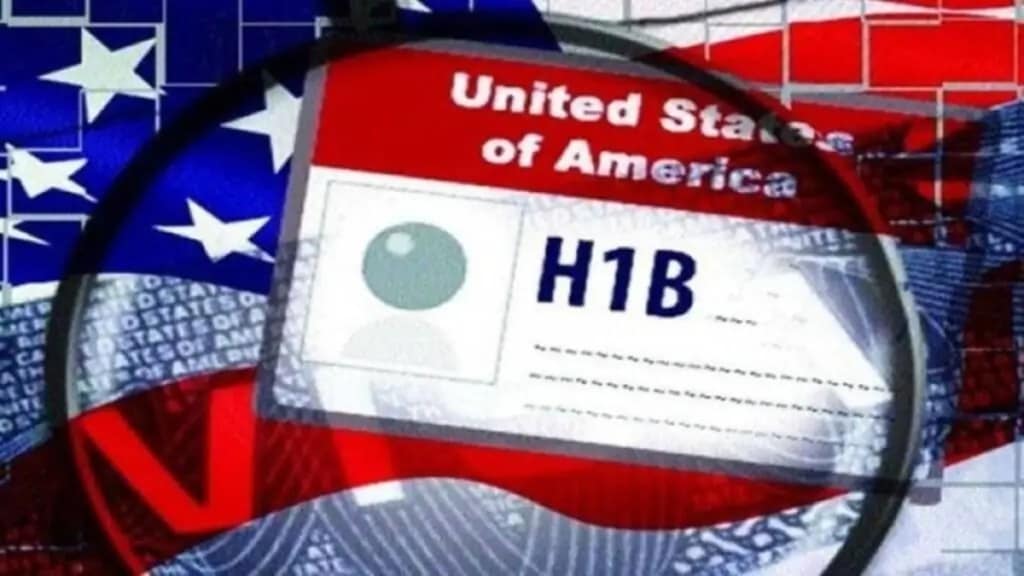The US Department of Labor (DOL) has launched Project Firewall, an enforcement initiative targeting misuse of the H-1B visa program. The move is being projected as a way to safeguard American jobs, wages, and opportunities, but it also brings new challenges for immigrants and employers who rely on the program.
Secretary of Labor Lori Chavez-DeRemer said the step was necessary to protect American workers, adding that no employer should misuse visas “at the expense of US talent.”
Why Project Firewall matters?
The H-1B visa has long been a gateway for highly skilled immigrants, particularly from countries like India and China, to work in the US tech, engineering, and healthcare sectors. With Project Firewall, the US government has hinted that it will keep a closer watch on how employers use these visas.
For immigrants, this means a stricter process of applications and work conditions. For companies, it means more paperwork, surprise checks, and higher risks of penalties if rules aren’t followed.
Project Firewall investigation: Key areas
For the first time, the Secretary of Labor will personally sign off on investigations into suspected violations. These probes will look into whether companies are:
- Paying H-1B workers fairly compared to US workers
- Using correct job classifications and descriptions
- Following all legal conditions, including proper filing and record-keeping
Violations could lead to heavy fines, repayment of wages, or even bans from using the H-1B program in the future. DOL will also share information with agencies like the DOJ, EEOC, and USCIS, raising the chances of wider investigations that go beyond wage issues, according to the Morgan Lewis law firm.
Project Firewall impact on immigrants
For H-1B workers already in the US, Project Firewall may come with a whole package of uncertainty. Past practices suggest authorities will conduct unannounced site visits to check job duties, wages, and work locations. Even remote work or role changes could trigger compliance checks. Investigators are expected to focus on:
- Whether H-1B workers are paid at least the higher of prevailing or actual wages
- Misclassification of jobs into lower-paid categories
- Worksite accuracy, including remote work compliance
- Proper posting of notices and maintenance of Public Access Files
- Whether terminated H-1B workers were offered return transportation
- Check if bonuses, benefits, and other forms of compensation are at least equal to what is offered to comparable US employees.
The DOJ may pursue visa fraud, false statements, or mail and wire fraud if companies are found to have knowingly filed inaccurate petitions. Companies will need to double-check compliance systems, while immigrants could see more hurdles in the already competitive H-1B process.
Retaliation and whistleblower protection
Project Firewall will also look at whether employees who spoke up or cooperated with the Wage and Hour Division faced any backlash. Any retaliation can hit employers with hefty fines and damage their reputation, so protecting whistleblowers is now the priority.
Project Firewall doesn’t introduce new laws, but it does show a stricter enforcement stance. This could slow down hiring of foreign talent, as companies evaluate the risks of audits and penalties. It may also push more firms to prioritise American hires, as the government intends, while leaving skilled immigrants with fewer opportunities.
“The Trump Administration is standing by our commitment to end practices that leave Americans in the dust. As we reestablish economic dominance, we must protect our most valuable resource: the American worker. Launching Project Firewall will help us ensure no employers are abusing H-1B visas at the expense of our workforce,” said U.S. Secretary of Labor Lori Chavez-DeRemer. “By rooting out fraud and abuse, the Department of Labor and our federal partners will ensure that highly skilled jobs go to Americans first.”
